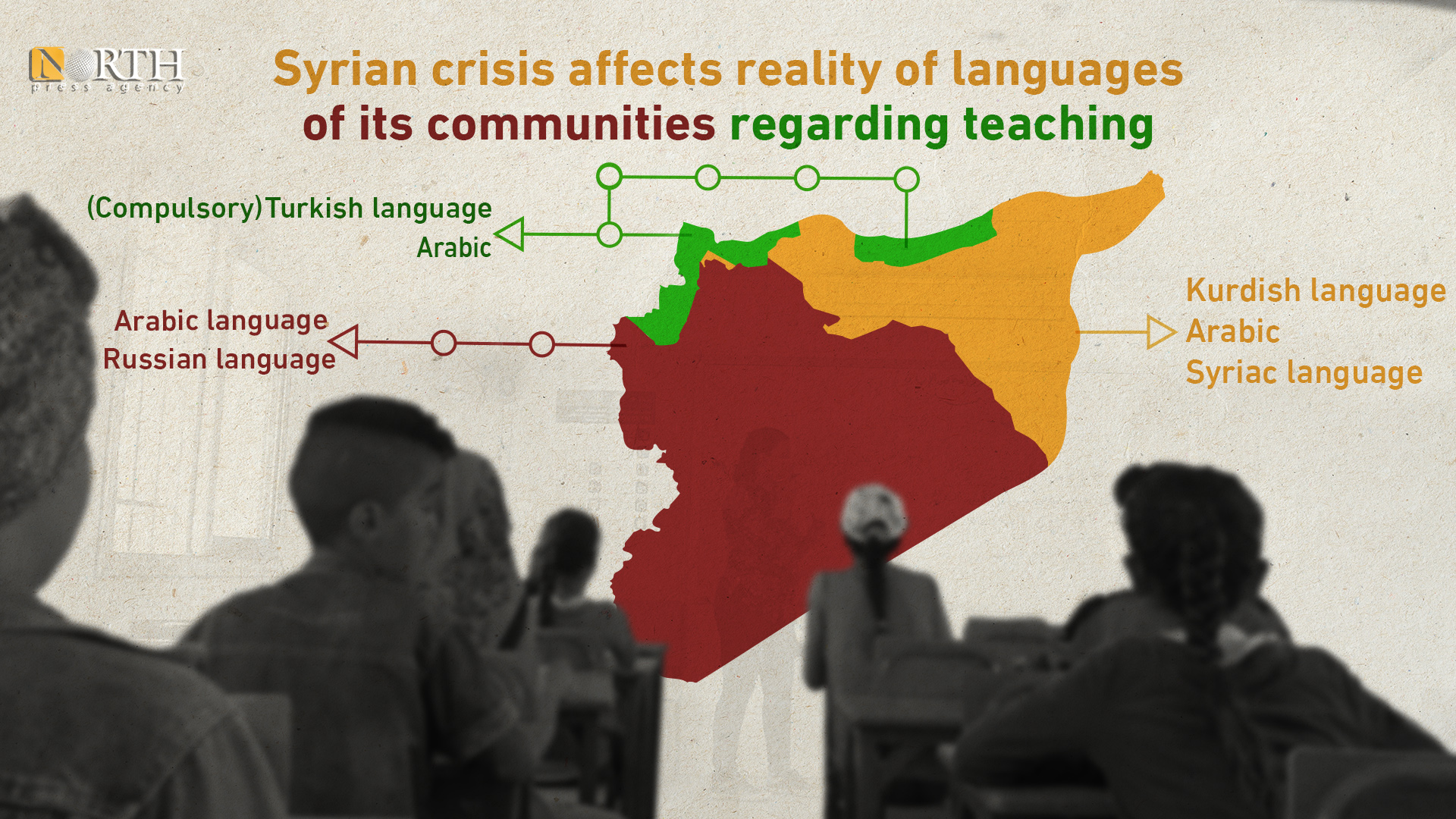QAMISHLI, Syria (North Press) – The twenty-first of February every year marks the International Mother Language Day (IMLD), which is celebrated all over the world, except for Syria, where the reality of education and language is different from one region to another as a result of the of the military control of different forces.
The theme of the 2022 International Mother Language Day was “Using technology for multilingual learning: Challenges and opportunities”
Perhaps the reality of the Syrian crisis, which has been going on for more than a decade, reflects the state of the mother tongues in the country. The reality is divided between neglect and disregard for languages other than Arabic in government-controlled areas, and attempts to consolidate the experience of multilingualism in the Autonomous Administration areas, and obligating education in the Turkish language in areas run by Turkey and the affiliated opposition factions.
Damascus: Arabic is a priority and the language of the ally is preferred
Throughout the rule of the Baath Party in Syria, the Arabic language has been the official language across the country, while the languages of the rest of the communities such as Kurdish and Syriac were prohibited. And whoever who tried to teach or learn these languages were either arrested or forcibly disappeared.
Observers suggest that after a decade of war, Damascus is still ignoring the rest of the languages in the areas it controls, which is estimated at 63% of the area of Syria, and foreign languages, led by Russia, top its list of interests.
On December 18, the Russian Language Forum was held in the amphitheater of Damascus University, coinciding with the International Day of the Arabic Language.
The Presidency of Damascus University participated in the Russian Language Forum, which came under the title “Promoting the Study of the Russian Language in Educational Institutions in the Syrian Arab Republic.”
Turkish is official in Syrian regions
Turkey, in cooperation with the pro-Syrian opposition factions, is seeking to impose the Turkish language in the areas it controls in the northwest of the country, estimated at about 10% of the country’s area.
Since early in 2017/2018, the Turkish language has become compulsory in schools, in addition to changing the textbooks and teaching some materials in the Turkish language.
The Turkish forces are controlling different parts in northern Syria through Turkish-backed armed opposition groups in Jarablus, Azaz, al-Bab and Afrin in the northern countryside of Aleppo.
Additionally, Turkey is running Sere Kaniye (Ras Al-Ain) and Tel Abyad regions in north and northeast Syria, while other Turkish-backed armed opposition groups are controlling the governorate of Idlib.
Activists and observers believe that Turkey is following the Turkification policy in the Syrian north through education and other means in preparation for an expansionist plan or to annex parts of Syria to its territory.
On February 5,2021, the Higher Institute of Health Sciences and the Faculty of Medicine was found in al-Ra’i town, north Aleppo, by a decree issued by the Turkish President, Recep Tayyip Erdogan.
North Press obtained special photos from the village of Mashala, in Sharan district, east of Afrin, showing students attending a school where the Turkish flag was raised and the Turkish language is taught.
New experience faces criticism
In northeast Syria, the Autonomous Administration adopts the mother tongue education system, which recognizes the study of each community in its mother tongue, such as Kurdish, Arabic and Syriac, in addition to subjects for local and foreign languages.
In a statement on Monday, the Autonomous Administration of North and East Syria (AANES) demanded on the International Mother Language Day the United Nations support “the first experience of the multilingual education system in the Middle East.”
In a dialogue forum organized on the International Mother Language Day on February 21, 2021, the Education Board of the Autonomous Administration called on forming a broad front to promote the rights of minorities and ethnicities in the field of language, in coordination with civil and legal bodies.
Numerous criticisms are directed by opponents of the AANES, such as that the educational system is not recognized and that the teaching staff lacks experience and academic qualifications.

